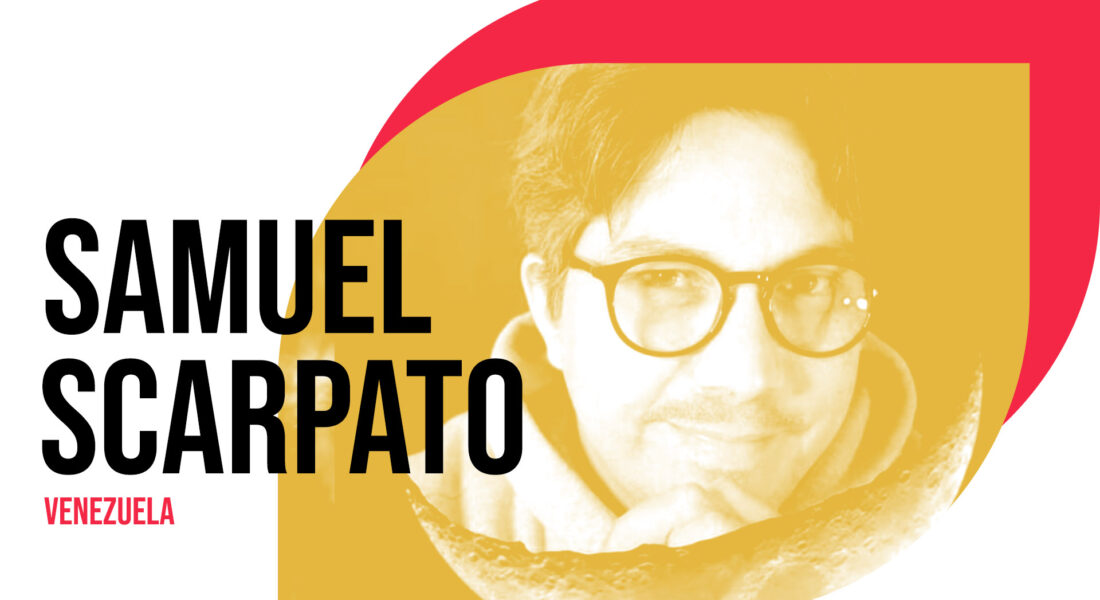
Italy is a great country, strong, and gives foreigners a chance to become better by providing them with the tools they need to increase their skills
Samuel was born in Caracas and raised in Barquissimeto, where the Andes mountain range originates. Proud of his two surnames, Scarpato (from his father, a Venezuelan born and raised in Italy) and Mejuto (from his mother, a Galician Celt, Venezuelan born and raised in Spain), Samuel, 49, has dual citizenship, Italian and Spanish.
His origins are rooted in indigenous communities. His mother teaches him what “in the West we call paranormal, but instead is part of the world and that is to talk to plants, animals, the earth, nature to know how to understand the phenomena around us”.
He initially studied Anthropology, but halfway through he opted for Business Administration at the University of Barquissimeto, specializing in local development: “Having lived in Indigenous communities, I noticed that they needed help in managing their projects, community and agricultural administration”. He went on to earn a master’s degree in Educational Science, one in Management of Social Economy and Cooperations, and, in 2018, a PhD in Political Science at Simon Bolivar University in Caracas, followed by an internship in collaboration with a German cooperation agency.
Samuel is a researcher. Venezuela’s sociopolitical crisis brought him to Italy, where he arrived in 2017 with his wife and two children (initially living “on the doormat of a studio apartment in Moncalieri”), hoping to find employment in social work and sustainable development.
Italian was not a problem for him because he spoke it at home from an early age, along with Sicilian. He knows four other languages: English, Spanish, Portuguese (Venezuela has a long border with Brazil) and Galician; thanks to his maternal great-grandmother, who was an indigenous American from the “Chuiva,” he also speaks two indigenous languages.
In addition to doing research, Samuel is the author of several books including “Cantos de tierra y vida,” based on his 30 years of experience in direct contact with Indigenous communities. He uses quantum physics language to make the case for how the millennia-old knowledge of Indigenous peoples could help address climate change issues.
“Culture is life, the earth is everything. We must learn from the original cultures of Asia, Africa or South America that do not separate production from nature’s ability to replenish itself, what scientists call “regenerative agriculture.”
Rigth now Samuel is writing “not to die of depression”. He has finished a book that is a psychiatric satire entitled, “Doctor, doctor, cien extraños relatos doctorales,” available on Amazon. He also has publications and teaching experience to his credit. His dream is to create a model of public policy management in agribusiness development.
For Samuel, “Italy is a great country, strong, gives foreigners a chance to become better by
providing them with the tools they need to increase their skills”; however, in the work environment, he finds little openness and difficulties in integration, even among Italians.
“What I miss about Venezuela is the people, the fact that everyone greets you, hugs you, shares with you from advice to a glass of water”. He would like his country to employ Italian agricultural technology in the future to make coffee production more equitable.
He concludes by saying that Venezuela is sympathy, joy, generosity.


